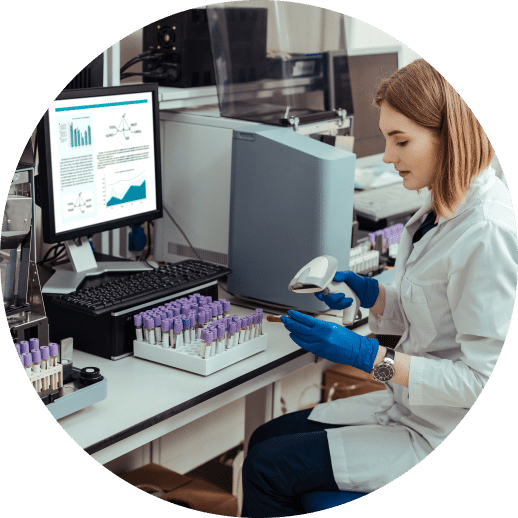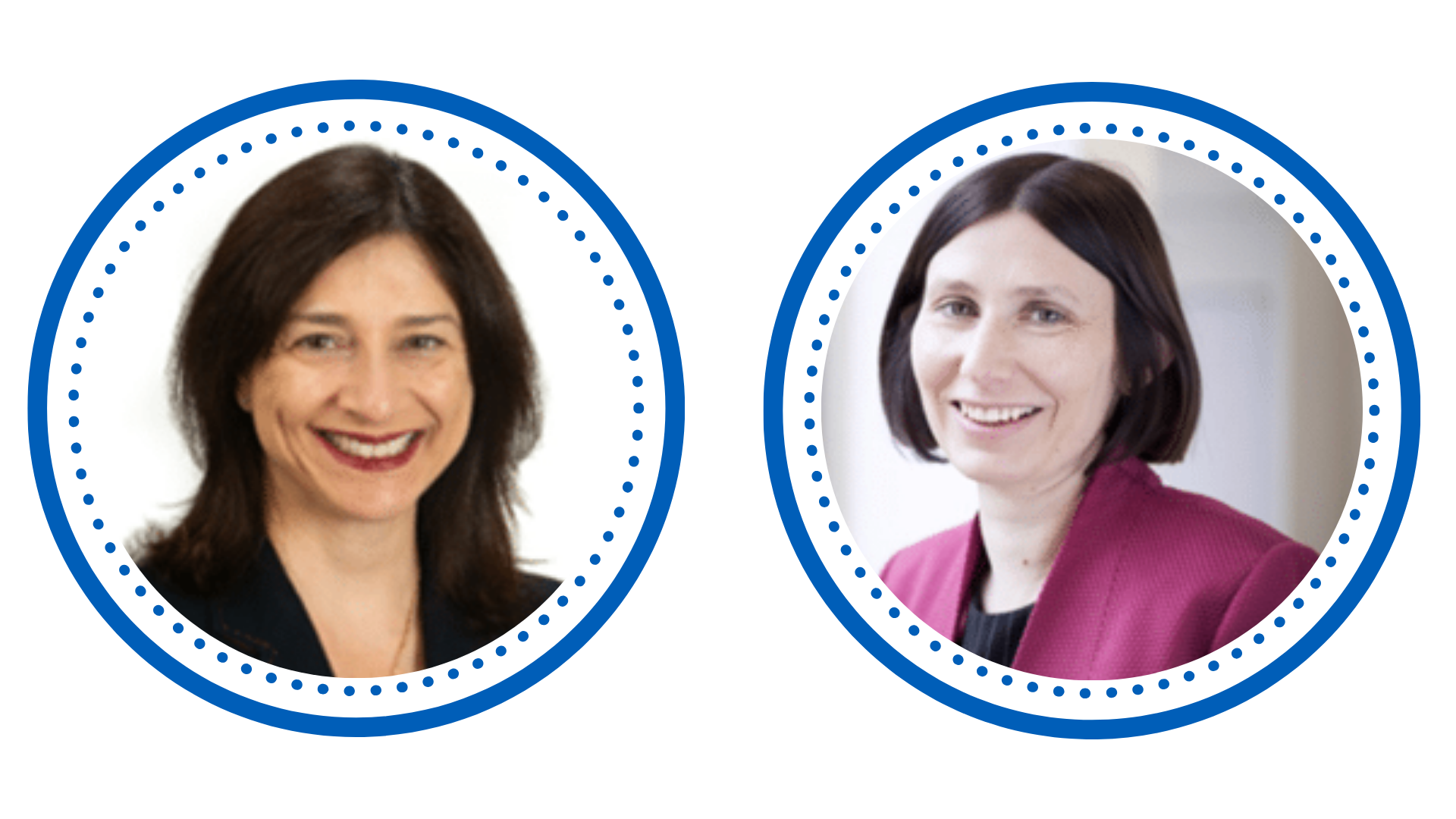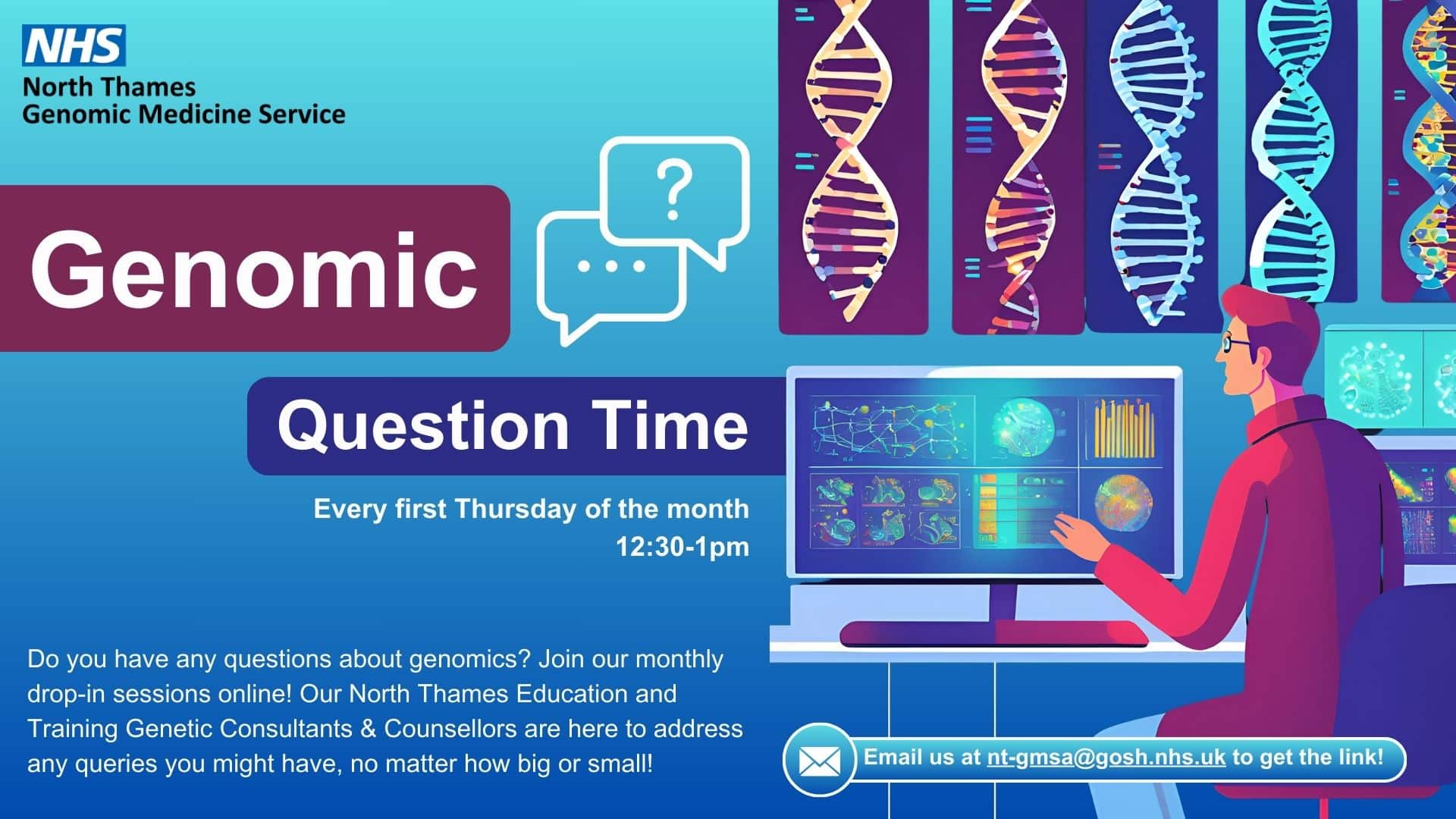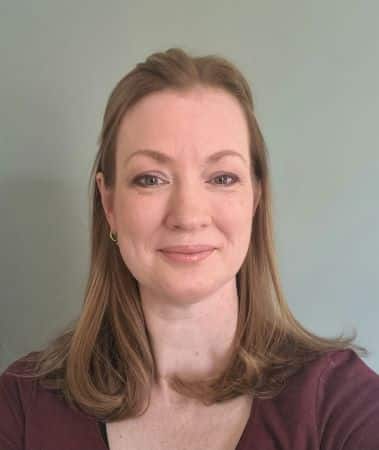Dr Sophia Varadkar
A couple of months ago, Hayley Turgoose, one of our Genomics Practice Educators came to join me in the epilepsy clinic. As we met the children, young people and their families, we looked to see who had had a genetic test done. I realised that almost of all my patients had had a genetic test and it had almost always been helpful!
Looking back at the last 10-15 years, working as a Consultant Paediatric Neurologist in the Complex Epilepsy Service at GOSH, we have found ourselves doing more and more genetic testing. The results from genetic testing became more and more helpful year-on-year, answering questions such as ‘why does this child or young person have epilepsy?’ and ‘why are the medications not working?’. Finding a diagnosis, could give families an explanation, stop us needing to do more tests (sometimes we call this the diagnostic odyssey), guide us to the right treatments for these children or indeed tell us when we don’t need to use treatments, and help them and their families plan for their futures.
This has been really important in the rare genetic epilepsies and also in the genetic epilepsies we now know are actually not so rare. Knowing that a child has a genetic change has opened up new treatments for them available in the NHS. Even if a new treatment isn’t available, having the knowledge of a genetic change can mean that when a new treatment becomes available, they know they will be eligible. This connects into the new world of precision therapies and pharmacogenomics.
So, genomics has really changed my clinical practice, what I can offer patients and what we can do in the future.
Seeing the impact of genetic testing and genomics directly in my clinic really piqued my interest and so when the opportunity arose to become Co-Medical Director of the North Thames Genomic Medicine Service, I was incredibly keen to be involved. I love working with Angela, she has huge expertise in cancer and cancer genomics. Together we can bring our skills and complementary expertise in rare and inherited disease and cancer to the service.
We’ve been in the role for nearly a year now and it has been a great year. I have really enjoyed it! I was of course nervous to begin with as genomics is not my area of clinical expertise, but discovering more and working with amazing colleagues who have so much knowledge has been fascinating.
It’s been amazing seeing the transformation projects coming to fruition and delivering for patients. It has also been really exciting this year as we have launched the Networks of Excellence, with North Thames leading on circulating tumour DNA biomarkers testing and prenatal genomic medicine.
I have really enjoyed working with the Patient, Public and Carer Panel. They are a phenomenal group of people with a real interest and lived experience of different aspects of health care. Every time we meet, I come away with new thoughts/questions. It is so important to be challenged and have others highlight areas we may not be considering. I’m looking forward to continue working with the panel in the future, seeing the panel grow and push us in the Genomic Medicine Service.
In the future, I think genomics will be across all healthcare and will be a part of everything. There is a new study being led by Genomics England called the ‘Generation Study’ and its moving newborn screening into the genomic era by sequencing the genomes of new-born babies for over 200 rare diseases.
Genomics is going to be part of health care from before a child is born, through childhood and into adulthood and will go across cancer and rare and inherited disease. It will also begin to influence what medicines we choose for our patients – the whole new emerging area of pharmacogenomics. I can imagine a future where at the beginning of a patient’s diagnosis and journey we can say ‘here are the treatments that are going to work for you’ and ‘here are the treatments that won’t work, so we do not waste time in treatment’ and ‘here are the drugs that will cause you side effects and we need to avoid’.




